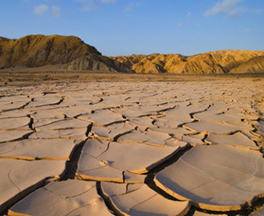Prepare for accelerating climate risks, IPCC says
 Governments and businesses must prepare for increasingly severe storms, droughts and other extreme weather events intensified by climate change, an international panel of scientists has said.
Governments and businesses must prepare for increasingly severe storms, droughts and other extreme weather events intensified by climate change, an international panel of scientists has said.No part of the world is free from risk, although poorer, densely populated regions are in the most danger, the International Panel on Climate Change (IPCC) confirmed in a new report yesterday.
Its Special Report on Managing the Risks of Extreme Events and Disasters to Advance Climate Change Adaptation (SREX) reiterates many of the points first highlighted in a summary published in November.
It predicts more frequent heatwaves, floods and droughts, accompanied by powerful tropical cyclones, and says the world knows enough about these risks to act now on man-made climate change, population shifts and poverty.
“Few countries appear to have adopted a comprehensive approach – for example, by addressing projected changes in exposure, vulnerability and extremes,” the report says.
It comes as insurer Swiss Re reported 2011 saw the highest ever economic losses in history through natural disasters and man-made catastrophes – an estimated $370bn compared to $226bn the year before. Well over half of this total was accounted for by the March earthquake and tsunami in Japan.
In the SREX, the IPCC focuses more on adapting to a warmer world than ever before. It warns current spending on adaptation projects in developing countries is about $1bn per year, a fraction of the estimated range of $70bn to $165bn invested annually in technologies to cut emissions.
The report says countries need to better assess people and places vulnerable to climate disasters and recommends spreading the financial risk to help poorer countries cope. This could take the form of micro-insurance, catastrophe bonds, or national and regional risk pools to help finance rebuilding and recovery.
However, Rajendra Pachauri, head of the UN panel, told reporters efforts to curb climate-warming emissions must be continued.
“Whatever we do, we have to adapt, of course,” he said at a briefing. “But also at a global level, we need to mitigate the emissions of greenhouse gases so that we ensure that these thresholds or tipping points are not exceeded.”
You can return to the main Market News page, or press the Back button on your browser.

